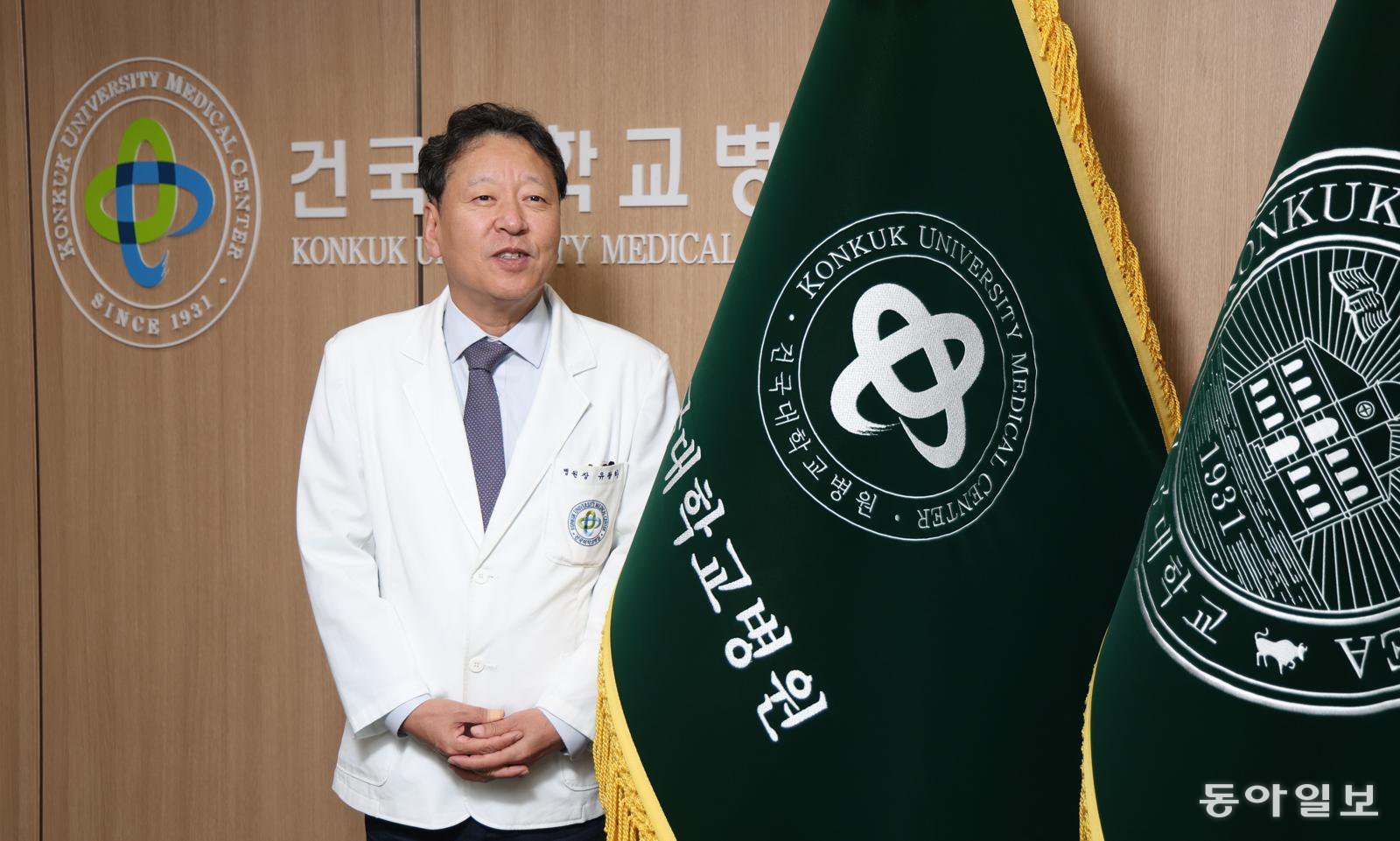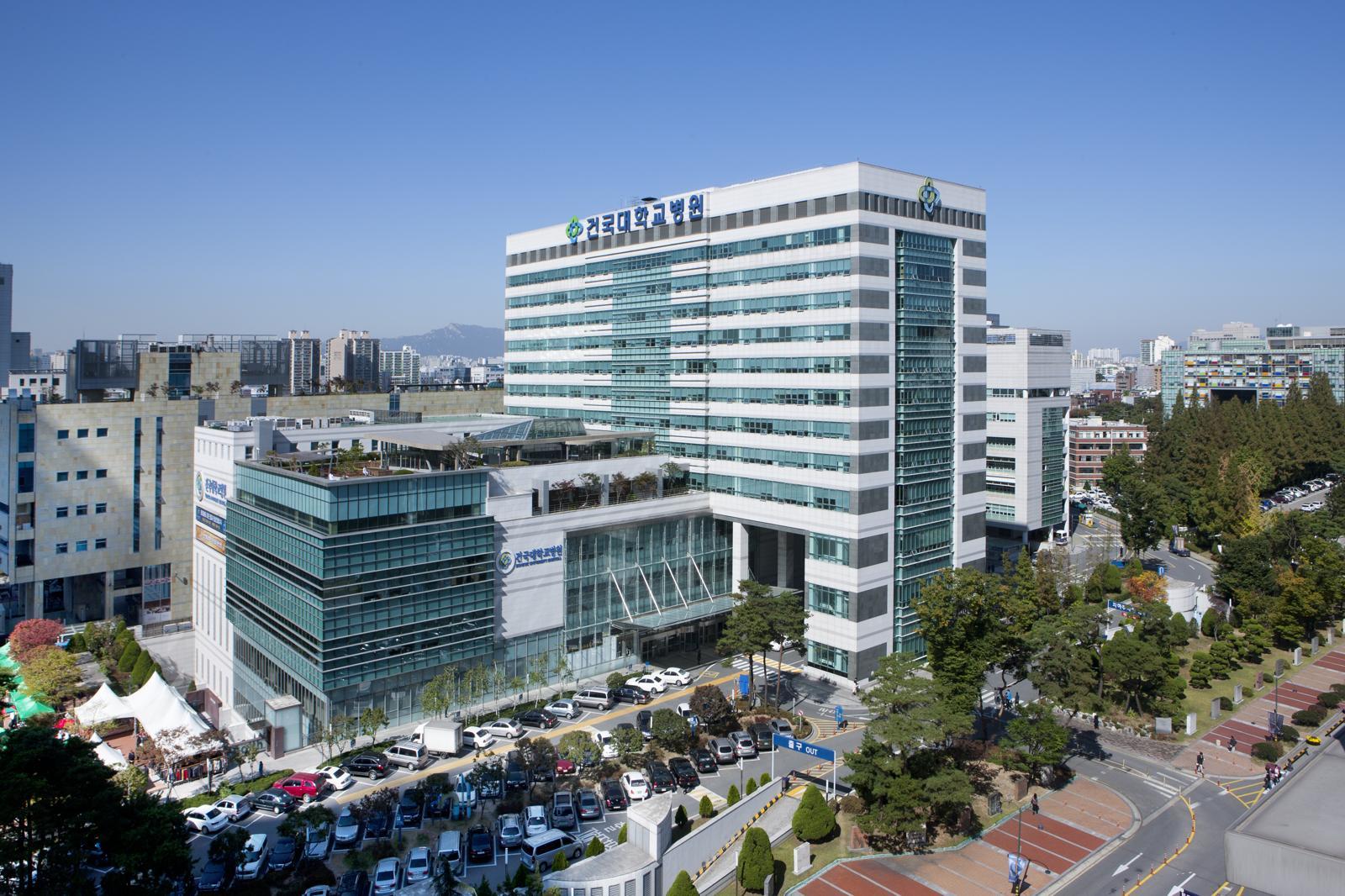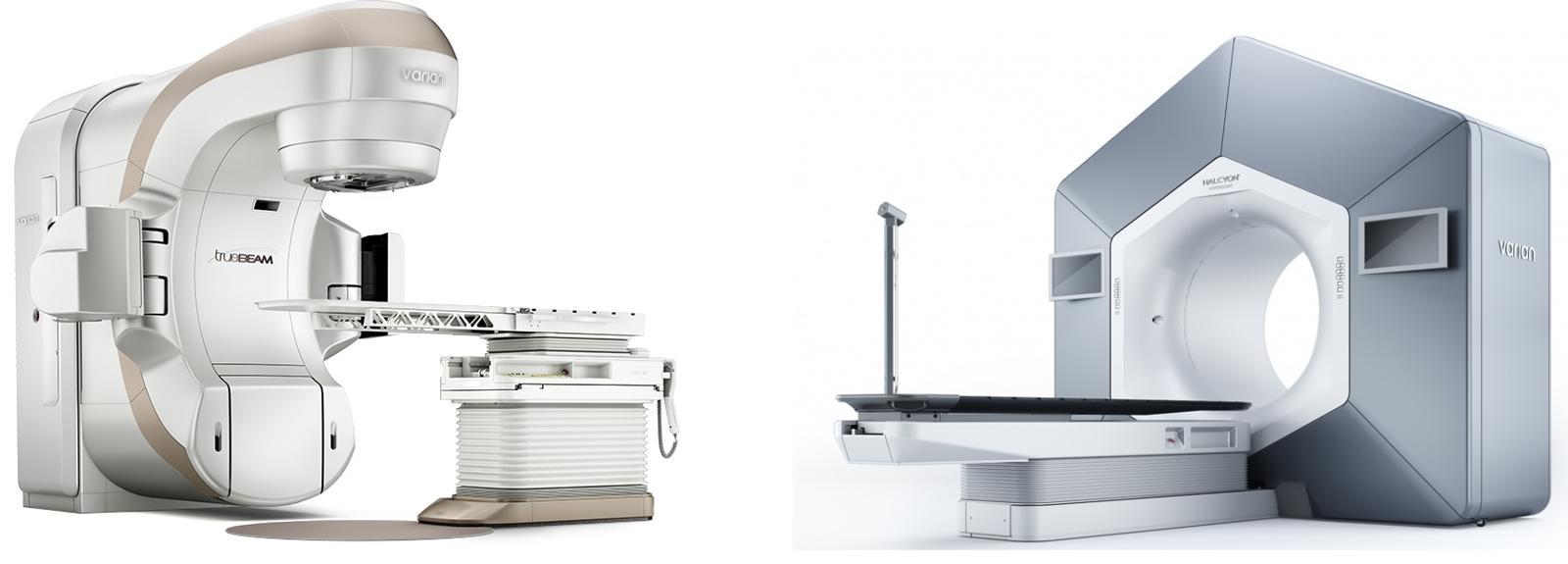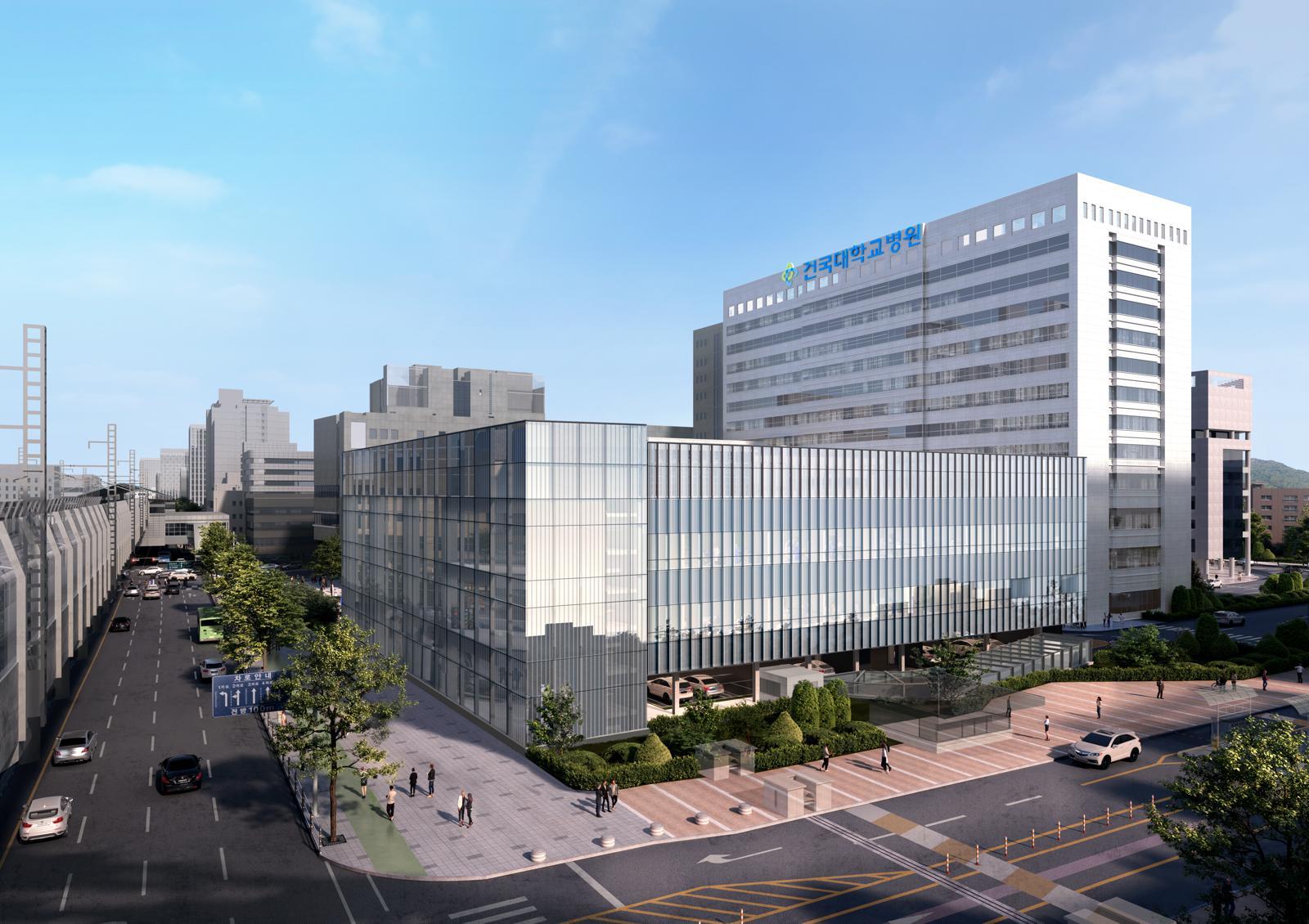
Medical / Medical AI
"AI to Cancer Devices: Patient-Trusted Medical Innovations"
Dong-A Ilbo |
Updated 2025.10.29
Interview with Yoo Kwang-ha, Director of Konkuk University Hospital
Outpatient space with three floors to be completed by 2027… Additional MRI-CT, reduced waiting times anticipated
Research space for basic and clinical studies for professors… Building infrastructure and equipment for 'CAR-T' introduction
Outpatient space with three floors to be completed by 2027… Additional MRI-CT, reduced waiting times anticipated
Research space for basic and clinical studies for professors… Building infrastructure and equipment for 'CAR-T' introduction
Yoo Gwang-ha, Director of Konkuk University Medical Center, stated, “Efforts will be made to create a hospital that patients trust and visit through patient-centered care.” Reporter Shin Won-geon laputa@donga.com
“When a patient arrives at the hospital, AI will recognize them and guide them to the consultation room, creating a system where they can receive care comfortably.”Konkuk University Medical Center celebrates its 94th anniversary and the 20th anniversary of its new hospital this year. In an interview on the 20th, Director Yoo Gwang-ha stated, “As a hospital established with the ideology of treating diseases to save the people, we will create a hospital that patients trust and visit through warm and kind patient-centered care.” Director Yoo has built strong trust both inside and outside the medical community, serving a third consecutive term at Konkuk University Medical Center.
A view of Konkuk University Medical Center in Hwayang-dong, Gwangjin-gu, Seoul, celebrating the 20th anniversary of its new hospital this year. Provided by Konkuk University Medical Center
Director Yoo stated, “When the three-story outpatient space is expanded in 2027, it will lead the way in opening the patient-centered AI era,” adding, “Above all, we will develop and introduce various AI programs to predict diseases so that patients do not suffer from serious illnesses.”Predicting and Preventing Diseases with AI
Recently, AI has been actively used in the medical field. Konkuk University Medical Center is independently developing AI programs related to life sciences. Particularly, the cardiology department is developing an AI program that analyzes retinal blood vessels through imaging of the retina, which corresponds to the film part of the eye. This aims to predict the risk of cardiovascular disease within five years, categorized as low, moderate, or high risk. Additionally, AI-based detection of cerebral aneurysms using MRI angiography is currently being applied to patients through new medical technology evaluations.
Director Yoo stated, “If a small cerebral aneurysm is not detected in an MRI, it will eventually be missed, leading to critical situations for the patient later on,” adding, “We have established AI systems that predict diseases based on patient examination data even at the health check-up stage, and AI tricks that can predict the risk of sepsis within 4 to 6 hours. All of these are related to patient survival.” AI tricks have been in operation since October 2023, contributing to reducing mortality rates by enabling quick and appropriate responses through pre-assessment with AI.
Additionally, the brain imaging analysis AI Neurofit Aqua rapidly quantifies MRI scans to indicate the degree of brain atrophy, brain aging, and analyzes neurodegenerative images. This helps medical professionals in differential diagnosis by quantifying structural changes seen in Alzheimer’s disease, vascular dementia, and mild cognitive impairment.
New Outpatient Center Construction and Introduction of Latest Equipment
Konkuk University Medical Center plans to start construction of a three-story outpatient center on the existing site in December this year, with completion expected in 2027. Some departments currently in the main building will be relocated to the outpatient center. The main building will then be equipped with the latest medical equipment. Additional MRI and CT machines will be introduced, reducing waiting times for examinations and improving the efficiency of medical services.
The TrueBeam precision cancer treatment device and the Helios HyperSight, introduced for the first time in Seoul. The Helios can obtain high-resolution images similar to standard CT in just 6 seconds, reducing the radiation dose to half. Provided by Konkuk University Medical Center
Director Yoo stated, “There are times when it takes over a month just to get an abdominal CT, but after the expansion, examinations can be conducted immediately after consultation.” In addition, the latest radiation cancer treatment devices such as the Helios HyperSight and TrueBeam have been introduced. The TrueBeam was replaced last December, and the Helios HyperSight was introduced this year, currently operating two radiation therapy devices.The TrueBeam allows for non-surgical cancer treatment and uses an integrated beam shaping device called a multi-leaf collimator for precision treatment. It features a respiratory gating function that tracks patient breathing and activates the beam only at optimal points in the respiratory cycle, enabling personalized precision treatment. The equipment with Helios HyperSight is the second in the country and the first in a Seoul-based hospital. It also features the largest imaging panel among radiation therapy equipment and the latest algorithms.
Director Yoo stated, “The Helios can obtain high-resolution images similar to standard CT in just 6 seconds, and it can reduce the radiation dose to the patient by half,” adding, “With improved resolution, it can more precisely target tumor tissues while preserving normal tissues as much as possible.”
A rendering of the three-story outpatient center scheduled for completion in 2027.
When the outpatient center is expanded, a steel-frame parking lot will also be constructed, securing a total of 720 parking spaces, partially resolving parking issues. In 2023, the intensive care unit and operating rooms were also expanded. Through expansion work that converted the hospital rooftop garden into an intensive care unit, 12 negative pressure isolation intensive care beds were created. Three operating rooms were also added, and the recovery room was expanded.Strengthening Medical Research and Introducing New Immunotherapy
The eight-story building previously used as a laboratory will be converted into a research space directly operated by the hospital starting in March next year. Outdated laboratory equipment will be discarded, and more than 70 new types of equipment will be introduced. A GPU server capable of processing large-scale clinical data will also be established. It is expected to transform into a space where medical school professors actively participate, promoting translational research that can expand both basic and clinical research simultaneously.
In particular, to strengthen research capabilities, a ‘First Research’ initiative will be introduced. It provides KRW 15 million for one year to newly appointed assistant professors in 2025. A new focus research section has also been established, providing up to KRW 5 million to teams preparing for large national projects.
Konkuk University Medical Center is not content with this and is also pursuing the construction of a 12-story hospital to commemorate the 100th anniversary of the founding of Konkuk University Academy in 2031. The plan is to create an infectious disease ward to prepare for future infectious diseases. It will be used as a consultation space in normal times and converted into a specialized space for infectious diseases when they occur.
Konkuk University Medical Center is gradually establishing space, personnel, and equipment systems to introduce CAR-T cell therapy, a cutting-edge cancer treatment that is receiving attention as the latest anticancer treatment. CAR-T therapy is a personalized immunotherapy advanced anticancer drug that uses the patient's own immune cells, T cells, to attack cancer cells.
It can offer new hope to patients with relapsed or refractory blood cancers that do not respond well to existing chemotherapy or hematopoietic stem cell transplantation. Complete remission (CR) cases have been reported in pediatric or young adult acute lymphoblastic leukemia (ALL) and certain types of non-Hodgkin lymphoma, serving as a ‘last treatment option.’
Director Yoo stated, “CAR-T is an expensive treatment, but with domestic insurance coverage, the patient's out-of-pocket cost has been reduced from tens of millions of won to millions of won. However, there are not many hospitals in Korea that can accommodate this, so patients and families who are not treated with existing methods have considered overseas treatment,” adding, “If Konkuk University Medical Center implements CAR-T treatment, insurance will also apply, and the quality of treatment services can be improved. We will focus on achieving long-term goals through continuous investment and expansion for AI-centered disease prevention and treatment, severe treatment focus, and research-centered hospital development.”
Lee Jin-han
AI-translated with ChatGPT. Provided as is; original Korean text prevails.
ⓒ dongA.com. All rights reserved. Reproduction, redistribution, or use for AI training prohibited.
Popular News














